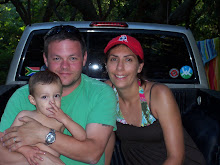It's December 16th, which is a public holiday in South Africa where my wife Daleen is from. The intention of the Day of Reconciliation is to foster reconciliation between different racial groups in the country. The holiday came about in 1994 at the end of Apartheid and was instituted by the new government, led by Nelson Mandela and the ANC. Prior to 1994, December 16th was known in South Africa as the Day of the Vow or the Day of the Covenant. This was a public religious holiday commemorating the Boer victory over the Zulus at the Battle of Blood River on 16 December 1838.
In South Africa during the 1830's and 1840's, there was a mass exodus of white farmers of Dutch descent from the Cape of Good Hope. This exodus was known as the Great Trek and involved great numbers of Afrikaner farmers (the Boers) moving northward from the cape and into the interior of the country. There are many reasons for the Great Trek. Mostly, the Boers were escaping from what they perceived to be oppressive colonial British rule. Also, the South African interior proved to have superior farming conditions.
This mass migration of white farmers northward caused many conflicts between the whites and the nations of indigenous tribesmen that occupied the land where they were moving. From an American perspective this is somewhat interesting. White people, expanding outward in covered wagons, fighting off the natives..... almost sounds like the American west doesn't it? There are actually quite an amazing number of similarities. Anyhow, eventually the Zulu leader Dingane sent the Zulu army, about 10,000 men, against an encampment of 470 Boers led by Andries Pretorius along the banks of the Ncome river. The Boers circled the wagons for protection and then, before the battle, they took a public vow that in return for God's help in obtaining victory, they promised to build a church and would keep the day as a Holy Sabbath.
"Here we stand before the holy God of heaven and earth, to make a vow to Him that, if He will protect us and give our enemy into our hand, we shall keep this day and date every year as a day of thanksgiving like a sabbath, and that we shall erect a house to His honour wherever it should please Him, and that we also will tell our children that they should share in that with us in memory for future generations. For the honour of His name will be glorified by giving Him the fame and honour for the victory."
 Needless to say, the Boers won a lopsided victory (3,000 Zulu killed vs. 3 Boers wounded) and the battle pretty much ended the Zulu opposition. The battle was called Blood River because of the water turning red from the blood of the fighting. And the Boers kept their promise. They built the church which still stands, and they kept the date as a public religious holiday.
Needless to say, the Boers won a lopsided victory (3,000 Zulu killed vs. 3 Boers wounded) and the battle pretty much ended the Zulu opposition. The battle was called Blood River because of the water turning red from the blood of the fighting. And the Boers kept their promise. They built the church which still stands, and they kept the date as a public religious holiday. In post-Apartheid South Africa, the Day of the Vow has been criticized as a racist Afrikaner holiday and celebrates the success of Western forces over native Africans. However, many people still celebrate the holiday and say it has nothing to do with racism. Many Afrikaners say the holiday is simply giving thanks to God for deliverance from certain destruction. Their belief is that thanksgiving for the deliverance of God is independent of race.
Race is such a huge issue in South Africa. Even with the end of Apartheid, race is a major aspect of the national culture. You just can't get away from it. Without the racial aspect though, I like the idea of having a day to give thanks for God's deliverance over insurmountable odds. It's very much like the American Thanksgiving holiday, where the settlers gave thanks for their survival under some extremely harsh conditions. I also like the current holiday in South Africa that falls on December 16th. The Day of Reconciliation. I think they need a holiday like that to remember where they've been and where they are heading. It's been fourteen years since the holiday was changed. A lot of things are different now in South Africa, but so many problems remain. A Day of Reconciliation is a good thing. It's a great thing. But they are still facing some very large challenges. Perhaps together, they should take a new vow.....



2 comments:
Dear Ray,
I came across your posting about the Day of the Vow/Covenant/Reconciliation and noticed your reference to the American West and its Indian Removal. I became deeply engaged in this connection over the past few years, since the latter months of 1838 were also the time of the Trail of Tears. Indeed, not only did American missionaries participate in both events, but the Cherokee also took African slaves with them on the Trail. Many trips to South Africa and to various points on the Trail went into my historical novel -- Red Clay, Blood River --which you can find out about at the site below (or Amazon). SA and US history interconnect in many ways. This one should push us further to explore our buried memories and the challenges of reconciliation on many fronts.
William Everett
www.redclaybloodriver.com
Hi William,
Thanks for the website info. I'll certainly check it out.
I am really fascinated by this and the other connections between SA an US history. (There are so many.)
Thanks a lot for your informative posting. I really appreciate it.
Post a Comment